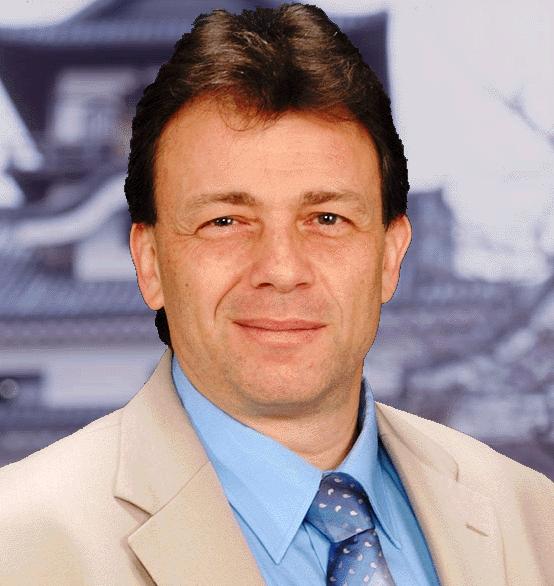Emily Metzgar’s op-ed: “The JET Program and the US-Japan Relationship”
A great summary of the long-term value of the JET Program (i.e., Return on JET-vestment) by University of Indiana journalism professor (and JET alum) Emily Metzgar:
The JET Program and the US-Japan Relationship: Alumni of the Japan Exchange and Teaching Program are an important part of bilateral ties.
As official Washington prepares for the late April visit of Japanese Prime Minister Shinzo Abe and his scheduled address to a joint session of Congress, many aspects of the bilateral relationship between the United States and Japan will rightly be feted, including a robust strategic alliance and significant economic ties between the two nations. The visit also presents an opportunity to consider a less discussed but increasingly important aspect of the U.S.-Japan relationship writ large: The extensive – and growing – network of American alumni of Japan’s long-standing Japan Exchange and Teaching (JET) Program.
Click here to read the rest of the op-ed: http://thediplomat.com/2015/04/the-jet-program-and-the-us-japan-relationship/
Be interviewed for a book about the JET Program!
Dear American JET Alumni,
I’m writing a book about American alumni of the JET Program and the growing influence of this community on the broader US-Japan relationship. I’m a professor at Indiana University and a JET alum (Shimane, 1993-1995). I’ve already published some research about American alumni of JET and the tremendous potential of this pool of college educated people with on-the-ground experience in Japan. My book will document that influence in a variety of contexts — political, cultural, educational, corporate, etc.
As I work on this book I need your help. I’m interested in talking with American alumni about the various ways they remain involved with Japan after finishing their tenure with JET. Would you be willing to be interviewed for this project?
I’ve set up an online data collection site and am asking that alumni who are willing to be interviewed use that link to provide a few details about themselves so I can determine whom to contact and when, based on my research timeline. This project is authorized by my university’s Institutional Review Board (IRB) and as the first item at the link below indicates, all safeguards associated with such university-approved research are in place.
If you’re willing to share your post-JET experiences and your insights about the growing influence of the American JET alumni community please click on this link (http://bit.ly/1Fvjvof) and provide the requested information (name, contact info, years & position on JET, current job, and nature of continued involvement with Japan). I will follow up with you soon to set up a phone or Skype interview.
If you have any questions about this request or if you’d just like to know more about this book project — I’m always happy to talk about it! — please don’t hesitate to get in touch.
Thanks so much for any insights you can share. I’m looking forward to hearing from you.
Sincerely,
Emily
From JET to NPR: An Interview (and Playlist) from Producer Robin Hilton
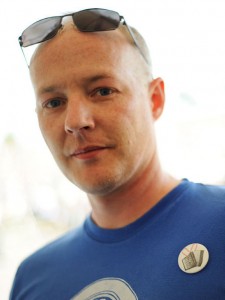
“The best you can do is be fearless and open. If you find yourself avoiding a possible career path because you’re afraid of something, stop. Take a deep breath and jump into it. You can’t expect to grow or get anywhere by playing it safe.” (Courtesy of Robin Hilton)
By Sheila Burt (Toyama-ken, 2010-2012) for JQ magazine. Sheila is a grant proposal writer at the Center for Bionic Medicine at the Rehabilitation Institute of Chicago. Read more of her reporting and writing at her blog.
Robin Hilton (Aichi-ken, 1996-99) is a radio producer and co-host of NPR’s music program All Songs Considered. In this JQ exclusive, Hilton shares his experiences on the JET Program in the late 1990s and his radio documentary Big in Japan, a comical and poignant reflection on his daily life as an English teacher in Japan.
Growing up in the small town of Abilene in central Kansas, Hilton never imagined living or working in Japan. But around the same time he graduated from the University of Kansas in 1992, Abilene initiated a sister city and exchange program with Minori, Japan (now Omitama) in Ibaraki-ken. At the encouragement of the program’s director, Hilton applied for a job teaching English more than 6,000 miles away from his hometown, as he was excited to begin a new endeavor outside of his comfort zone and experience a different culture. Yet Hilton would still have to wait a few years before his new adventure in Japan could begin.
“I didn’t get [the position],” Hilton recalls, “but it planted the seed in me, so a few years later I decided to try for the JET Program. I didn’t grow up with a deep fascination with or love of the country. But it ended up being one of the greatest things I’ve ever done with my life, and I certainly have that deep love for Japan now.”
JQ Magazine: JQ&A with Laurel Lukaszewski, JETAA Initiative Project Director
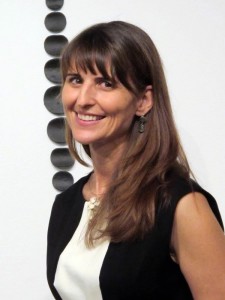
“I believe very strongly that a national organization will strengthen the network and relationships between both chapters and individual alumni, as well as elevate the status and recognition of the JET Programme and its alumni in the greater U.S.-Japan arena.” (Courtesy of Laurel Lukaszewski)
a
By Eden Law (Fukushima-ken, 2010-11) for JQ magazine. Eden currently serves on the JETAA New South Wales committee in Sydney, Australia as the online social media, webmaster and occasional editor. Got feedback? Leave a comment below.
In 2013, the JETAA Initiative project was launched by the United States-Japan Bridging Foundation (USJBF), with funding provided by the The Japan Foundation Center for Global Partnership (CGP). The first phase of the project was to assess the feasibility of a national JETAA organization, with the next phases dealing with the structure, duties and objectives of the new organization.
The first phase (feasibility study) has now wrapped up and its findings presented at the September 2014 National JETAA USA Conference, and the next phase is currently underway. JQ spoke with Laurel Lukaszewski (Kagoshima-ken, 1990-92), JETAA Initiative project director (who is also a highly noted, Washington D.C.-based ceramic artist in her own right), who kindly gave her time to discuss the JETAA Initiative, the findings and next steps for the project.
How did you come to be selected for the role of project director of the JETAA Initiative?
I applied for the position after I saw the job announcement posted in a number of different places. I work as an artist full-time, but my schedule is flexible and I thought this would be an exciting project. In my previous career, I was the executive director of the Japan-America Society of Washington, D.C. Before that, I worked for the Japan-America Society of the State of Washington in Seattle as their program director. I’ve also been part of the JET selection process for over 15 years (reviewing applications, interviewing, working at the embassy as the review committee liaison for two seasons). I have also been a board member of the National Cherry Blossom Festival since 2002 and have served on a number of arts-related nonprofit boards and committees over the years. I was also the secretary, then president, of the JETAA Pacific Northwest chapter in Seattle in the late ’90s, so JETAA is near and dear to my heart.
It’s been a year since your appointment. What were the main challenges you faced as a director?
While not exactly a challenge, it has been paramount to reach out to all 19 chapters in the U.S. to give them an understanding of what we are doing and why we think creating a national organization is necessary. To do this, both [JETAA co-founder] Paige Cottingham-Streater (Mie-ken, 1988-89) and I have attended national and regional conferences to give presentations and speak with alumni to garner their support. We have also made site visits to chapters in Kansas City, Atlanta and Denver to find out what challenges exist at the local level. It was also imperative to show the progress we made over the first year to our funder, The Japan Foundation Center for Global Partnership, so that we could continue.
Why was there a need to examine to conduct a feasibility study on whether a national organization was required?
The only way a national organization will be successful is if the JET alumni community wants it. This is being created for them. I believe very strongly that a national organization will strengthen the network and relationships between both chapters and individual alumni, as well as elevate the status and recognition of the JET Programme and its alumni in the greater U.S.-Japan arena, but the JET alumni community needs to believe this, too. We hope that the national organization will provide much needed support to smaller chapters and give alumni who live outside of large cities a way to connect to the broader JETAA community.
JET alum’s column on Ebola in USAToday
JET alum Emily Metzgar (Shimane-ken, 1995-93), a professor of journalism at Indiana University, has a column in USAToday this week titled, “Is U.S. ‘stuck on stupid’ on Ebola outbreak?”
If Emily’s name sounds familiar, it’s because she’s also the author of Promoting Japan: One JET at a time, a paper based on surveys of and research on the JET alumni community that attempts to measure return on JET-vestment.
Tennessee JET alum wins non-profit award for “ESL to Go” program
Thanks to JET alum Jennifer Butler, who works for the Consulate in Nashville and also is a former JETAA USA Country Rep, for passing on the link to this news about JET alum Leah Hashinger who created a mobile ESL program – http://www.lipscomb.edu/news/archive/detail/101/28681:
JET alum Leah Hashinger, a student in the Master of Arts in Civic Leadership program at the Nelson & Sue Andrews Institute for Civic Leadership at Lipscomb University, was recently awarded a Salute to Excellence Award from the Center for Nonprofit Management for her coordination of the ESL to Go program at the Tennessee Foreign Language Institute.
TFLI won first place, receiving a $25,000 prize in the Frist Foundation’s Innovation in Action category at the Center for Nonprofit Management’s awards ceremony. Hashinger, ESL to Go program manager, and Angela Harris, director of ESL/TESL at the institute, accepted the award.
Responding to the repeated identification of transportation as the number one barrier for refugees and immigrants in accessing English classes, ESL to Go offers a unique model of service delivery and access. The classroom-on-wheels (a truck outfitted as a classroom) brings English as a second language classes to refugees and immigrants in Davidson County.
“In 2011, I had the unique opportunity to transform an innovative idea into a reality,” said Hashinger. As a volunteer at TFLI, I began working with my supervisor on developing a mobile classroom that would bring English classes to the apartments where refugees live. The challenge allowed me to step into a leadership role where I learned to gather support from the community, build partnerships, gain trust and continue to respond to the dynamic needs of our students.”
Each year, CNM hosts Salute to Excellence, the “Academy Awards” of the Middle Tennessee nonprofit community, with a dinner and awards presentation that honors area nonprofits for their commitment to management excellence. The ceremony featured 12 awards and $210,000 in prize money for this year’s finalists. More than 1,000 guests and 35 of Nashville’s nonprofit organizations attended.
Hashinger is also the 2014 recipient of the Center for Nonprofit Management Award for Andrews Institute students. The award provides students a discounted tuition rate to earn their master’s degree in civic leadership.
“Watching Nashville become a leader in embracing cultural and ethnic diversity has inspired me to pursue a path of leadership as well,” said Hashinger. “As a civic leader, I will continually work to highlight the positive impact that immigration has on Nashville’s culture and economy, while developing innovative ways to fund nonprofit programs and rethink service delivery.”
A loss in the JET alumni community
From the CLAIR New York Facebook page:
We are saddened to learn of the passing of Ms. Nancy Kikuchi, one of the founding members of the JETAA Southern California chapter and a tireless advocate for the Japanese-American community in Los Angeles. Nancy was a Mombusho English Fellow before becoming one of the original JETs back in 1987. Returning to LA, she helped organize the chapter and served as its president from 1989 to 1993. Remaining active in alumni affairs, she went on to pursue a career in real estate, served as an advocate and consultant for the people of Little Tokyo, and worked for a number of community-based organizations. She was among five 2012 Women of the Year named by the Downtown Los Angeles Chapter of the Japanese American Citizens League and the Japanese Women’s Society of Southern California . Nancy embodied the talents, abilities, and aspirations of the finest JET Program participants, strengthening ties between Japan and her home country, and building on that experience to serve her community while always being there for Japan, for JET, and for her fellow alumni.
CLAIR Magazine “JET Plaza” Series: Laurel Stevens Lukaszewski (Kagoshima)
Each month, current and former JET participants are featured in the “JET Plaza” section of the CLAIR Forum magazine. The July 2014 edition includes an article by JET alumnus Laurel Stevens Lukaszewski. Posted by Celine Castex (Chiba-ken, 2006-11), currently programme coordinator at CLAIR Tokyo.
***********
Laurel Stevens Lukaszewski (Kagoshima-ken, Minamitane-cho, 1990-92), is a professional artist who has shown her work throughout the US and in the UK. She is also the former executive director of the Japan-America Society of Washington, DC and is currently project director for the United-States Japan Bridging Foundation’s JETAA Initiative. Since 2002 she has been a member of the National Cherry Blossom Festival’s Board of Directors. Raised on both the east and west coasts of the US, Ms. Lukaszewski holds a bachelor’s degree in International Affairs and a master’s degree in Asian Studies from Florida State University. She lives in the DC metro area with her husband and two rambunctious cats. To view her artwork, please visit www.laurellukaszewski.com
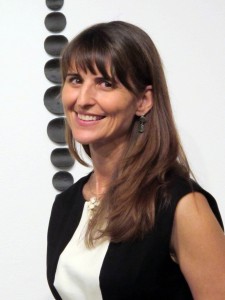
My JET experience taught me I could live in a world where I did not necessarily understand everything, but could still cope and thrive.
Enduring Connections
Twenty-four years ago I interviewed for the JET Programme in Atlanta, on my birthday. I felt this was a good omen, so I was not nervous even though this was my first professional interview. Despite spending the last two years of college studying all things Japanese, from language to religion, I had no personal connection with the country and had never been there. What was merely acting on a brief comment by a Japanese politics professor about an opportunity to teach in Japan led me down a path that has guided me over the past two decades.
I spent my two years on JET as the first Assistant English Teacher to be assigned to the town of Minamitane-cho, on Tanegashima, an island off of the southern tip of Kyushu in Kagoshima-ken. I taught at five junior high schools and visited eight elementary schools, usually the first foreigner any of the students had ever met. My role in class varied depending on the school, but every teacher I worked with was eager to include me in activities ranging from PTA BBQs to harvesting sugar cane with students.
During my first weeks I experienced two homestays before moving into my own apartment. In Kirishima, a beautiful mountain town overlooking the Sakurajima volcano, I stayed with a family with three school-age daughters. I did not know at the time that they would become my Japanese family, that their home would become mine whenever I returned to Japan, even decades later. Arriving in Minamitane-cho, I had a second homestay. And, once again, I had no idea that this young couple with three-year-old twins would end up being lifelong friends, attending my wedding, sending seasonal messages as the twins grew into young adults, and hosting my husband and me years later when we were stranded in Kagoshima by a typhoon.
One of the wonderful things about JET is it allows you to become part of the community. Whether anticipated or not, you become involved in the lives of your neighbors, teachers and students. When an art teacher learned my hobby was pottery, she invited me to visit her studio even though she did not speak English. Every week I would join another teacher and my neighbor and spend the evenings working with clay and chatting—an immersion experience in neighborhood news and gossip. When I returned to the US, it was these memories of Japan that endured. My experience taught me I could live in a world where I did not necessarily understand everything, but could still cope and thrive. Read More
JET-alum owned Chin Music Press opens in Seattle’s Pike Place Market
 Thanks to JET alum David Jacobson, who works for Chin Music Press, for sharing this press release. Chin Music Press is a Seattle-based publisher owned and run by Bruce Rutledge (Monbusho English Fellow, Chiba-ken, 1985-87) with a reputation for noteworthy cover art.
Thanks to JET alum David Jacobson, who works for Chin Music Press, for sharing this press release. Chin Music Press is a Seattle-based publisher owned and run by Bruce Rutledge (Monbusho English Fellow, Chiba-ken, 1985-87) with a reputation for noteworthy cover art.
Indie Book Publisher Opens Office/Retail Space in Seattle’s Pike Place Market
Press Release
July 16, 2014
Local independent book publisher Chin Music Press today opened a new office and retail/exhibit space in Seattle’s famed Pike Place Market. The retail space, open from 11am to 5pm Tuesday through Saturday, will feature all Chin Music titles as well as related posters, zines, chapbooks, stationery, broadsides and other artwork.
“It’s a great privilege for a small publisher like us to be able to obtain space at Pike Place Market,” said Chin Music Press Publisher Bruce Rutledge. “We now have room to give all of our titles the shelf space and attention they deserve. But more importantly, we can add to the literary ecosystem in Seattle. We look forward to connecting with other presses, bookstores, artists and lovers of literature to make our space a vibrant part of the community.”
“The Pike Place Market is very pleased to have Chin Music Press join the market community,” said Kelly Lindsay, director of programs and marketing for the Pike Place Market Preservation and Development Authority. “We believe the Seattle community, as well as visitors from around the world, will enjoy Chin Music’s first retail store and the opportunity to directly engage with featured artists, writers and photographers. Now home to five independent bookstores, the Pike Place Market is a destination for people who love to read. ”
Chin Music Press is best known in Seattle for such titles asShiro: Wit, Wisdom and Recipes from a Sushi Pioneer,Yokohama Yankee and A Commonplace Book of Pie. It has won awards and accolades for its books, with one NPR reviewer saying the press provided “a triumphant kick in the pants for anyone who doubts the future of paper-and-ink books.” Read More
CLAIR Magazine “JET Plaza” Series: Patricia Bader-Johnston (Yokohama)
Each month, current and former JET participants are featured in the “JET Plaza” section of the CLAIR Forum magazine. The June 2014 edition includes an article by JET alumnus Patricia Bader-Johnston. Posted by Celine Castex (Chiba-ken, 2006-11), currently programme coordinator at CLAIR Tokyo.
***********
Patricia Bader-Johnston (Yokohama-shi, 1989-91) was one of the first CIRs on the JET Programme. She currently is the Representative Director and CEO of Silverbirch Associates K.K; and is a retained Advisor to Tokyo Business Development Center, as well as a Partner in Thurlestone Capital (a leading clean energy investment firm in the UK). Before founding Silverbirch Associates in 2008, Ms. Bader-Johnston held senior roles in leading companies including Goldman Sachs, BAT and IBM, over a span of 25 years in Japan. She is an active speaker, writer, panel moderator and university lecturer on topics related to CSR and sustainability, globalization trends, and doing business in Japan.
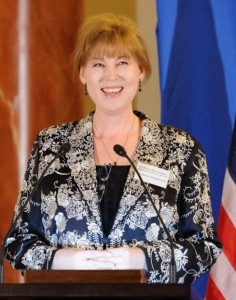
Patricia Bader-Johnston emceeing the Entreprepreneur Business Awards Ceremony 2013 (courtesy of Ms. Bader-Johnston)
I was a CIR in Yokohama City government between 1989 and 1991. It was the year of YES 89, an international expo involving over 60 countries that ran throughout that first year, and set the tone for many of the experiences I had in my early days in Yokohama. It also no doubt helped set a path for my future career in Communications. Working as a member of Yokohama City Hall – City pin in my lapel and all – I not only received the gift of a Key to the City when I left, but also a host of memories and formative experiences that remain with me to this day.
I had already been in Japan for two years before becoming one of four of Canada’s first CIR’s on the (then) brand new and completely unknown JET programme. Because the program was so new, we no doubt benefited from a fair amount of attention and special care in that first year. I had a chance to personally interview Prime Minister Nakasone a few years after I left the programme, and he told me how JET had been meant to emulate the US Peace Corps. He had wanted to bring young foreigners into Japan to “cause positive friction” to force Japanese to internationalize more quickly. He called this programme “Kokusaika.”
In order to have the foreigners live in the country long enough to create this “friction”, they needed to be given something to do over a longer term, so they came up with two types of jobs descriptions: the AET to influence educators and young people, and the CIR to influence local governments.
As a CIR I was exposed to many various experiences that ranged from working in the International Press Center for YES 89 to assisting at UN conferences. I mc’ed an ASEAN conference, interpreted for the Crown Prince and Prime Minister Kaifu when they met the International Director of the Red Cross, helped play host to numerous foreign delegations that ranged from the Vice President of the United States to the Mayor of Vancouver Canada and the Vancouver City Police Pipe Band among others! It was an amazing collection of experiences for a young foreigner in Japan. As the resident Canadian CIR in the Yokohama International Communications and Exchanges Division, I introduced the name that stuck to the Maritime Museum in Yokohama, raised a flag with Mayor Takahide and actress Agnes Chan when the Pacifico International Conference Center opened, and even had the great honor of being named celebrity “Postmaster for the Day” (complete with carrying out his duties for one full day). It was also a great honor to be asked to judge the Horseback Archery competition in Kamakura one year! Through these combined experiences I met many influential people who continue to be a help to me in my career today.
Had I not met officials from the Canadian Embassy in Yokohama through YES 89, I would not have been invited to apply for my next role in Communications and Culture at the Embassy in Tokyo. I was the first non-Japanese to take on a local senior program officer role for them. My network gained through the JET programme made me an asset to the embassy that allowed me to participate in a far greater range of projects, and my Japanese ability, honed through countless formal meetings with Japanese government colleagues, was polite enough for me to represent the embassy at official events. I planned and hosted every Canadian JET welcome event that took place in the eight years I was with the embassy, so have met many Canadian JETs over the years and have even hired some of them since then! Read More
AJET Connect Magazine Interviews an Award-winning Saga JET Author
 Via the Saga JET Programme website:
Via the Saga JET Programme website:
This month’s edition of AJET’s Connect Magazine features a double (DOUBLE) page spread interviewing current Karatsu City JET Andre Swartley about his award-winning book – Leon Martin and the Fantasy Girl. If you haven’t read this month’s edition, the interview and short review is below. If you want you buy a copy of the book click here.
Review and Interview: Leon Martin and the Fantasy Girl
Leon Martin and the Fantasy Girl delves into cultural exchange on a level that most people never get a chance to experience. When a group of American high school students arrive at a small German town for a summer work-study program, they find themselves caring for a potentially illegal alien in a life-threatening situation.
Leon and Autumn, a pair of teens staying with the same host family, are at the forefront of the action. Instead of spending their summer doing the work they traveled to Germany to do, they find themselves looking after a girl named Shin. Her presence is the glue that holds this story together, as well as what makes it so unbelievable. Shin’s story is vague at first and takes its time in clearing itself up.
The build-up to the second half requires readers to have some faith that that these characters will eventually find themselves in slightly more realistic situations, which they do. Spending a summer abroad in Germany is adventurous, but saving a fellow foreigner who should have been taken into custody from the beginning is a bit of a stretch. Read More
AJET Professional Development Call with JET alum Anthony Bianchi
On May 7th, we held our fourth AJET Professional Development Conference Call. Our guest speaker was former JET, Mr. Anthony Bianchi (Aichi-ken, Kiyosu City, 1989-91) who now serves as a city council council member in Inuyama City, Aichi prefecture. Mr. Bianchi is often highlighted in the Japanese media and is well-known for being the first American-born elected official in Japan. Click here to read a short interview with him on AJET.net.
Mr. Bianchi discussed the inner workings of his current position, various initiatives to improve English and international communication in his community and how JETs can potentially get involved with local politics in their communities.
Click here to listen to the recording of the call on the AJET website: http://ajet.net/2014/05/13/professional-development-call-anthony-bianchi/
JETs in the News: Matt Cook featured in hometown paper
**************
Very nice article on JET alum and former AJET Chair Matthew Cook (Osaka-fu, 2007-12) that recently appeared in the newspaper of Matt’s hometown, Danville, Virginia and describes his path from the JET Program to becoming a key player in Osaka’s pioneering English education reform efforts.
Danville man appointed to Japanese board of education
By DENICE THIBODEAU
dthibodeau@registerbee.com
Thibodeau reports for the Danville Register & Bee.
May 10, 2014
When Danville native Matthew Cook headed to Osaka, Japan, in 2007 to take a job as an education specialist and trainer in the Japan Exchange and Teaching Program, little did he realize he would end up working for a Japanese government agency to completely reform how English is taught in the city.
CLICK HERE to read the rest of the article: http://m.godanriver.com/news/danville/danville-man-appointed-to-japanese-board-of-education/article_1b9620f2-d972-11e3-8adc-0017a43b2370.html?mode=jqm#.U3A0DN98uYw.facebook
JET alum Roland Kelts on Japan’s “Generation Resignation” in Adbusters
*****************
Another thought provoking article by JET alum author and writer Roland Kelts(Osaka-shi, 1998-99), this one in the current issue of Adbusters.
The Satori Generation
A new breed of young people have outdone the tricksters of advertising.
Roland Kelts, 07 May 2014
They don’t want cars or brand name handbags or luxury boots. To many of them, travel beyond the known and local is expensive and potentially dangerous. They work part-time jobs—because that is what they’ve been offered—and live at home long after they graduate. They’re not getting married or having kids. They’re not even sure if they want to be in romantic relationships. Why? Too much hassle. Oh, and too expensive.
In Japan, they’ve come to be known as satori sedai—the “enlightened generation.” In Buddhist terms: free from material desires, focused on self-awareness, finding essential truths. But another translation is grimmer: “generation resignation,” or those without ideals, ambition or hope.
CLICK HERE to read the rest on ADBUSTERS: https://www.adbusters.org/magazine/113/satori-generation.html
Click here to read more of Roland’s articles from Adbusters: https://www.adbusters.org/authors/roland_kelts
CLAIR Magazine “JET Plaza” Series: Yuri Lowenthal (Shiga)
Each month, current and former JET participants are featured in the “JET Plaza” section of the CLAIR Forum magazine. The May 2014 edition includes an article by JET alumnus Yuri Lowenthal. Posted by Celine Castex (Chiba-ken, 2006-11), currently programme coordinator at CLAIR Tokyo.
***********
Yuri Lowenthal (Shiga-ken, 1993-96), grew up in Nashville, Tennessee, but moved all around the world because his father was in the Foreign Service, so he went to elementary school in Nashville, Junior High in Niamey, Niger, and then college back in Williamsburg, Virginia at the College of William and Mary. His hobbies are mostly entertainment related, and he’s managed to make a living at it! He joined the JET Programme because it joined his love for Japan and adventure, and had no idea that it would prepare him for one of the most difficult yet rewarding professions, acting.
My JET Programme Experience: How Do You Prepare for the Unknown?
Who knows what the future will bring? I guess we all have an idea. I thought I knew what was going to happen. Surely I would continue work as a CIR in Shiga Prefecture as long as they would let me, then find another job in international relations, just like my father. I was having a blast working in Shiga prefectural office doing everything from helping ALTs troubleshoot issues in their schools or in their lives, keeping the ALT community informed with newsletters, teaching English to cadets at the local police academy, translating, interpreting and fielding the occasional letter to the Governor from a man who believed that aliens were working with the Japanese government on time-travel experiments and mind-control. I had been in love with Japan since I was a kid, and this was the perfect life for me. Now I am an actor, writer and producer living in Los Angeles. What happened? Life, I suppose. We all change, and the best experiences change a person greatly. My experience in Japan constantly forced me to question my preconceived notions of things and stay open to many different kinds of ideas. It is what made me stay in love with Japan. Because of my father’s work, I had visited many countries all over the world, but there was something different about Japan. Every day gifted me with something new, excited me with mysteries, and kept me interested.
While working in Japan I was also able to explore my love of the arts. I studied Butoh dance in Kyoto, Kabuki, Bunraku and Kyogen in Osaka, and made short films with my friends (often, much to the confusion of the people around us.) One day I realized that, as much as I loved living and working in Japan, I had to try my hand at acting for a living, much in the same way I took a big chance and came to live and work in Japan because I loved that so much. But I did not leave Japan behind when I returned to the US. I came home with a confidence that I did not have before my experience with JET: the confidence I built as a CIR, working with all different kinds of people, both from Japan and other countries; learning to solve problems creatively and on-the-fly; developing and maintaining relationships with people, both personal and business; teaching and allowing myself to be taught. And because you never know how what you learn at any given time will come in handy later, I had no idea that when I came back to the States that I would use the Japanese language I had honed to work with Japanese clients in TV and film production in New York City.
The money I had saved during my time in the JET Programme gave me the time and space to create the relationships that led to actual work that would employ what I learned working for the local government in Shiga Prefecture. These skills would allow me to work with Brad Pitt for a Japanese jeans commercial, produce an episode of Beat Takeshi’s nature program in the Bahamas, and get into a harrowing altercation with an angry chimpanzee for a show about two Japanese comedians visiting the US. And then, when I got married and moved to Los Angeles, I began working in the anime-dubbing business. While knowledge of Japanese is not essential to the work, it has been one very important skill that has set me apart from most of my other colleagues. Many of the characters I have played have been Japanese. And because so much of my work is voice acting, I have been able to play the roles because of my experiences and the skills I developed in Japan despite the obvious fact that I do not look Japanese! In the competitive world of acting, an advantage like this is hugely empowering. Read More


